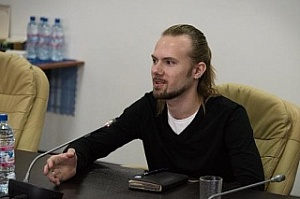Alex Miklashevsky, a TSU graduate student, has created the first Russian database of concrete and abstract nouns, in which he described their relationship with various modalities - sight, hearing, taste, and smell. This work will allow us to calculate the patterns of human data processing. The database can also be used to select incentives in medical and cognitive tests to improve rehabilitation in speech disorders.
An article about the results of the work of the young scientist is published in Journal of Psycholinguistic Research.
- In the cognitive sciences, in education, and in medicine, the view that language units are abstract and separate from our physical experience has long dominated. As a consequence, children learn foreign languages by comparing foreign words with the words of their native language, - says Alex Miklashevsky. - New research in embodied knowledge shows that it is of fundamental importance what kind of experience is associated with one or other words: this is significant for remembering, extracting information, and deep understanding.
Currently the database includes 506 concrete and abstract nouns. Also, the linguist conducted an experiment using the Likert scale (from 1 to 7) that revealed how much a specific word is associated with sight, hearing, and taste for native speakers of the Russian language.
- We saw that most of all, nouns are associated with visual information because vision is the leading channel for obtaining information. Next in importance is the tactile and the audial modality, and in the last place are taste and smell, which are closely related, because food is a special stimulus, important for human survival. The auditory information stands apart from the others, it seems to be stored in a special module in the mind in isolation from other types of information, - Alex Miklashevsky noted.
The database was published with the article. It allows us to understand how consciousness works, how we learn language, and how language is stored in memory. This knowledge makes it possible to develop methods for studying native and foreign languages, as well as technologies for rehabilitation after damage to speech functions.
Later, the scientist plans to expand the database so that those who use it can make a more detailed picture of their research.
The postgraduate student works under the guidance of TSU Professor Zoya Rezanova, the head of the Department of General and Slavic-Russian Linguistics and Classical Philology and the Laboratory for Cognitive Studies of Language.
Alex Miklashevsky won a competition for a scholarship from the President of the Russian Federation for study abroad in the 2016/17 academic year and spent one semester in Potsdam, Germany, where he worked with Professor Martin Fisher, one of the leading modern specialists in embodied knowledge and research on mathematical thinking. Now Alexey is a graduate student of the Faculty of Philology of TSU and a research fellow at Potsdam University.

